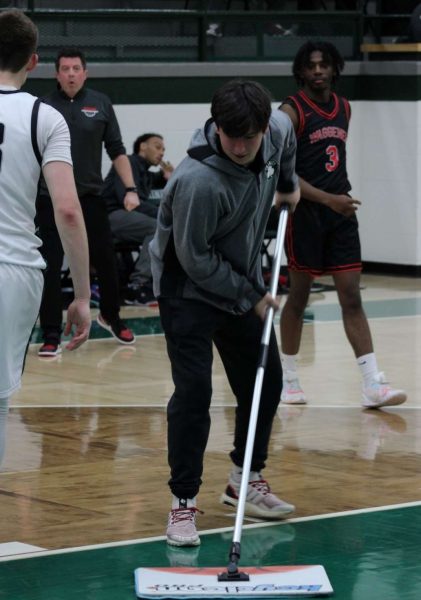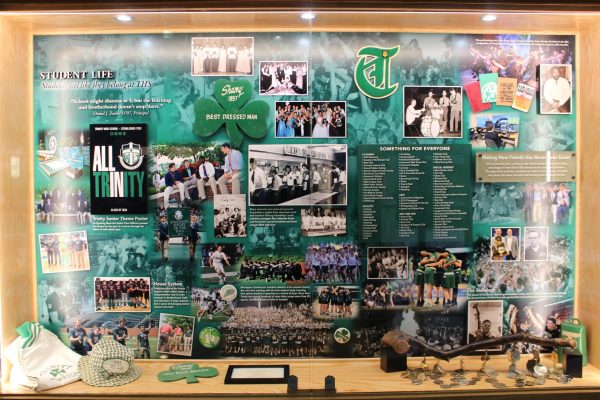Building Futures Block by Block
February 14, 2018
You wake up one morning after a long break.
You start panicking because you don’t know whether it is a green day or a white day. You text one of your friends and ask them. They don’t know either!
What should you do? You only have so much time until you get to school, and boom it hits you — just look on the Trinity website to see what day it is.
Knowing the correct color of the day is crucial to a block schedule, a format Trinity has used for a number of years. The thinking behind adopting a block schedule was that it is more like college and allows students to focus on only four classes per day.

I love block scheduling; it helps me focus in class better, and it also helps me maintain what I have learned that day. There is nothing I would really change (about) block scheduling.
— Trinity junior Alex Brown
What do students think of the schedule?
Trinity senior Bryce Lowe said, “Other schools have eight classes a day, and it causes you to stay up late. With four classes a day, you get more time for homework and less stress. It definitely helps a lot.”
For some students, coming from grade school into a block schedule took adjustment. Trinity junior Alex Brown said, “Block scheduling took a bit of adjustment, but once I got into the routine, it went pretty well. I love block scheduling; it helps me focus in class better, and it also helps me maintain what I have learned that day. There is nothing I would really change (about) block scheduling.”
Lowe said the advising (resource) period three days a week also helps. He said, “Advising is very helpful because you can get your homework done and not have to do it at home.”
Brown said, “Advising gives students the opportunity to do their homework. If they have extracurricular activities after school, it gives them time to do their homework early instead of late at night.”
Trinity sophomore Jacob Albrecht agreed that advising makes a difference. He said, “I do most of my homework in advising so I don’t have as much to do at home, and I also try to balance my homework if I have a lot.”
Albrecht said balancing out homework is the best way not to get behind. “Homework isn’t due until two days after it’s assigned, so I’ll do one half one day and the other half another day,” he said.
In adjusting to block periods of 75 minutes, Albrecht said in addition to using advising, he trained his attention span to pay attention for longer periods of time.
Trinity teacher Mr. Tom Dubay said students can improve their use of block scheduling by working every day. He said, “I think some students procrastinate, but if they are worried about their grades, they will do the work on time.”









